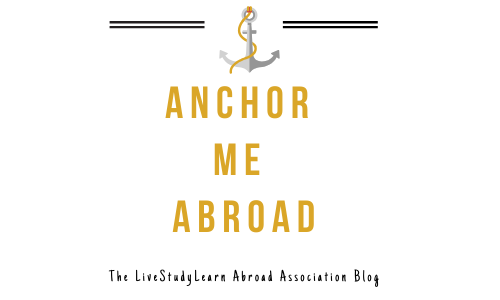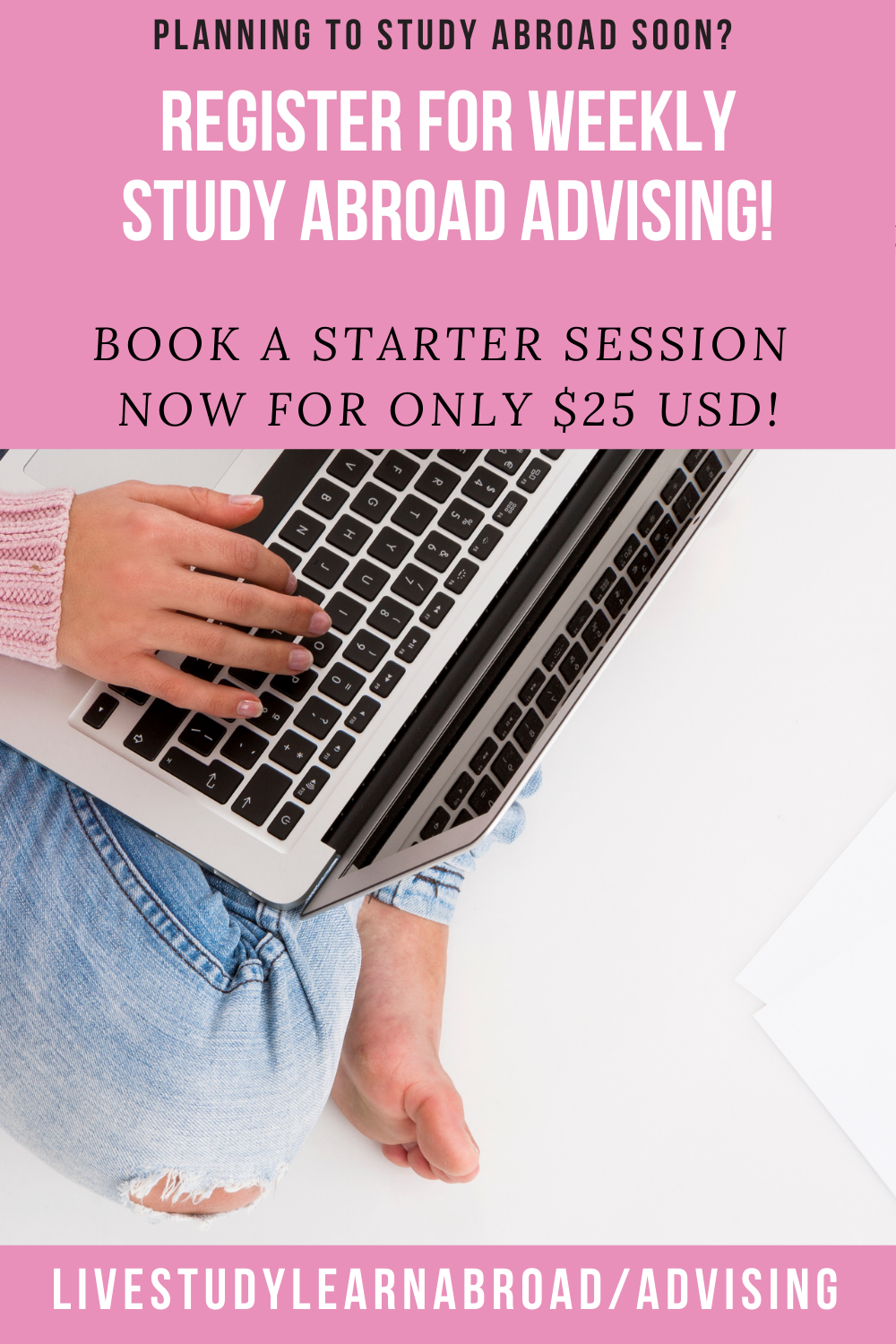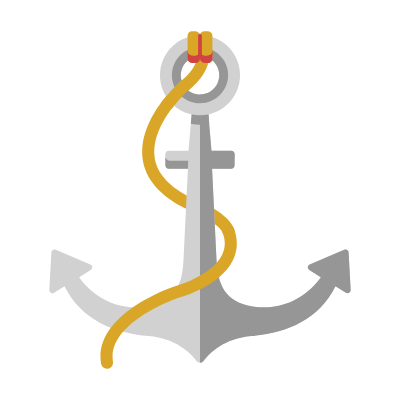
How To Use Study Abroad to Advance Your Career
Study abroad is often a transformative experience. While it may seem that your time away comes and goes quickly, the memories will remain forever and the access to more opportunities are now more fruitful than it would have been had you not gone.
Here are five ways that study abroad can be used to improve your career:
1. Building and Developing Your Resume/CV
The reason why many students opt for study abroad, it is a high-valued asset to have included on your resume. Whether you are applying for new campus jobs, internships, or headed out to begin your full-time career, people love hearing about study abroad.
When possible, you will want to find a way to relate that you have some study abroad experience in connection to the job you are applying for. While I would never suggest just randomly including it when it’s not related, there’s usually an opportunity to draw on the connections.
Be sure to include popular buzzwords like ‘International Study Experience’ or ‘Global Work Experience’ in your Cover Letter and Header Paragraph (if applicable) so it stands out just in case your resume is not being thoroughly read.
On the resume, you’ll also want to treat your study abroad experience like a job in the sense that you should highlight any academic achievements you had during your time away, explain how long you were there, and include anything about your semester (or longer) abroad that will be helpful with this new opportunity you are seeking.
2. Expanding Your Professional and Personal Network
This is something I have mentioned as a benefit multiple times on this blog and on my youtube channel, and it’s often underrated. Studying abroad gives you the opportunity to cultivate a wider professional and personal network that would have never been possible.
I personally have the belief that students benefit the most when they participate in programs that are not connected to their home college or university because it forces you to have to communicate outside of your ‘bubble’.
The most important part to remember is that you do not have to build your network with force. Start by connecting with current classmates and study abroad teachers on LinkedIn or other professional platforms. Then, be prepared to connect with new people when you go to local events or even just in your day-to-day life.
You’ll end up with a nice cross-section of former classmates/teachers and knowing locals in your former host country that may be lifelong friends or future connections for opening a new door.
3. References & Recommendations
Connected closely to expanding your network, lean into your newfound colleagues and contacts for future references and recommendations. When I returned home from my first stint in London and wanted to return for grad school, I was able to depend on references from my intern manager and professors to include in my applications.
Since that time, I have reached out to many others I met while abroad for different types of references or referrals while working on various projects, often much more than those I attended undergrad within my home country.

In a future blog post, I’ll talk more about good reference etiquette and how to stay connected to people. It’s something many of us, myself included, struggle with as day-to-day life moves quickly.
4. Showcase Your Ability to Take Risks
Studying abroad is a risk. While a calculated one, it still is risky from an academic and personal perspective. You’re prepared to embark on a journey to a new place and throw yourself into a different way of life for an extended period of time.
As previously mentioned, despite millions of students worldwide doing so every year, study abroaders are still in the minority because most will never take the leap of faith to try it. Similar to well-placed positioning on your resume, think of ways that you can showcase your willingness to take on a challenge and embrace risk by explaining your study abroad experience in stories and ‘small bites’ of information.
Did you have to overcome a language barrier? Did you find a new tool to combat homesickness? Were you able to establish a strong bond over a hobby with some of the locals?
These details will set you apart in a formal interview or just in casual conversation as you allow people to learn more about you and what you can offer.
5. Exposure to International Work Opportunities
If someone would have told me at the beginning of my undergraduate career, that I’d be kicking off my career by working in the UK for a global education company, making an above-average salary (by 2012 standards), I would have laughed immensely.
If they would have then said I’d have built a company based around the concept of study abroad, I would have asked them to kindly leave for being so absurd.
Even during graduate school, I just assumed I would return to the US to begin my career. But my experience opened new doors which led me in a different direction.
One of the biggest mistakes I think that many study abroad students make, especially in today’s age, is not considering their marketability to work abroad after their program has been completed.
Understandably, it often seems easy to defeat. You think you may not be able to secure a visa, or that a national of your host country will be selected over you, or that switching from student mode to ‘adulting’ may be more costly overseas. All of these things are true but workable.
Relevant more so to students like me who complete degree programs abroad, there’s a ripe window of opportunity to dive in and compete for more internships, apprenticeships, and even lower-paying positions that could potentially lead to something bigger down the road.
From the beginning of your semester (or longer away), start researching how you could extend your time away to gain some experience and sharpen your future prospects.
As a society that is becoming increasingly global, having foreign-based work experience is only going to open more doors and help you grow and cultivate the skills you’ll need to continue thriving.
Until next time,
– K
Known as The Study Abroad Specialist, Kimber Grayson is a serial-study abroader turned International Education coach and expert. Since 2014, she has helped 100+ students navigate their semester away journey from the coastal areas of Spain to China and every place in between. In 2018, she launched The LiveStudyLearn™ Abroad Association, a one-of-a-kind online membership platform for study abroad students worldwide.
She holds two Master's degrees from two well-respected London-based universities and has experience working in the US, UK & and Italy.
In her spare time (what's that again?), she enjoys leisure travel city breaks, any snow-based activity, skeet shooting, and attempting to learn new languages.
kimber
Known as The Study Abroad Specialist, Kimber Grayson is a serial-study abroader turned International Education coach and expert. Since 2014, she has helped 100+ students navigate their semester away journey from the coastal areas of Spain to China and every place in between. In 2018, she launched The LiveStudyLearn™ Abroad Association, a one-of-a-kind online membership platform for study abroad students worldwide. She holds two Master's degrees from two well-respected London-based universities and has experience working in the US, UK & and Italy. In her spare time (what's that again?), she enjoys leisure travel city breaks, any snow-based activity, skeet shooting, and attempting to learn new languages.


You May Also Like

3 Important Types of Study Abroad Programs to Know
May 20, 2022
How To Use Your FAFSA for Study Abroad Funding
March 4, 2022








